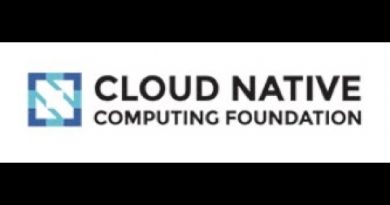Unravel the mystery of DevOps Jenkins, Vagrant & Ansible – learn Development Tools
link to this course
https://click.linksynergy.com/deeplink?id=Gw/ETjJoU9M&mid=39197&murl=https%3A%2F%2Fwww.udemy.com%2Fcourse%2Funravel-the-mystery-of-devops-jenkins-vagrant-ansible%2F
Unravel the mystery of DevOps Jenkins, Vagrant & Ansible – learn Development Tools
Best Development Tools Course
Learn to Use DevOps toolchain and power your applications.
Learn end-to-end architecture of DevOps,Install and configure DevOps tools such as Jenkins and Vagrant,Deploy infrastructure using Vagrant,Manage code using Git,Perform the unit testing of virtual machine,Learn about the features, key concepts, architecture of Ansible and learn how to integrate Ansible with Jenkins,Learn about Docker container, Docker swarm and application deployment using Docker Swarm
Familiarity with Windows/Linux Operating System,Basic knowledge on network management and network security,Basic knowledge of infrastructure and environment management,Zeal to learn DevOps toolchain and new technologies,Burning desire to learn something new,The success of an organisation is based on its ability to plan and develop rapidly than its competitors do. The faster an organisation can adopt, test and release the new applications, the bigger its advantages are in the market. But as long as there is a communication gap between development, quality analysis, and operations teams, the application cannot be deployed rapidly and successfully.,DevOps is a compound term of ‘Development’ and ‘Operations’. It encourages the communication between Software developers, Quality Analysts, and Operations personnel and thereby increases the speed at which applications are to be delivered. DevOps is a set of practices that enhance the communication between the teams involved in the process. But its implementation includes a series of tools used at various stages of the lifecycle. There is no one single tool that can be considered as DevOps tool. A series of tools from a variety of vendors are used in one or more phases of the application development cycle.,Just look at these amazing numbers.,The global DevOps market size is expected to reach USD 12.85 billion by 2025, according to a new study by Grand View Research, Inc., registering an 18.60% CAGR (Compound annual growth rate) during the forecast period.,North America is estimated to account for the largest market size in 2018, whereas the Asia Pacific (APAC) region is projected to grow at the highest CAGR during the forecast period in the DevOps market.,According to 2018 Salary Guide for Technology Professionals published by Robert Half, DevOps engineers will be one of the topmost professions in demand among North American employers in 2019.,A report published by ‘The Linux Foundation’ by the title ‘Open Source Jobs’, showed that 60% of the hiring managers are actively looking to hire and fill DevOps practitioner positions.,According to quickstart 42% of the employers responded to the ‘Open Source Job Report’ by stating that they would like to add DevOps expertise across their hiring portfolio —which makes DevOps skills rank among the 5 top sought after skills which include open source cloud, big data, security skills, and application development.,According to Glassdoor (a job site), currently, the average median salary for DevOps engineers is nearly $133,378 based on 990 job postings submitted.,There is already a serious shortage of hireable DevOps engineers, and this gap is growing rapidly. Simply put, there’s a massive opportunity for people like you to equip yourself with the right skillset so that you can:,1) Join talent-hungry large tech companies or start-ups and be at the forefront of global innovation,2) Launch unique businesses or application development services for the next generation,3) Enjoy plush paying cool projects powered by DevOps,Whatever your choice may be, DevOps is going to be YOUR KEY to financial success and growth and for the success of the community as a whole!,,Why DevOps?,In traditional and agile methods of product lifecycle, there are many gaps in performance. But in DevOps, you will find the right tools and techniques to perform the tasks. A cycle of continuous integration, continuous delivery, and continuous deployment is called DevOps. This is what differentiates DevOps from traditional and agile methodologies.,DevOps is a process that brings the development, quality analysis, and operations teams together to complete product development. This allows organizations to be more productive in less time. When the teams work together they can experiment and innovate more efficiently and this helps to speed the development process. They can focus more on getting the product to market rather than their individual goals. The main agenda of DevOps is to have one goal for all the departments involved in the product lifecycle.,This trending software development approach has many technical and business benefits that include shorter developme
by Cao 573bay
linux foundation



